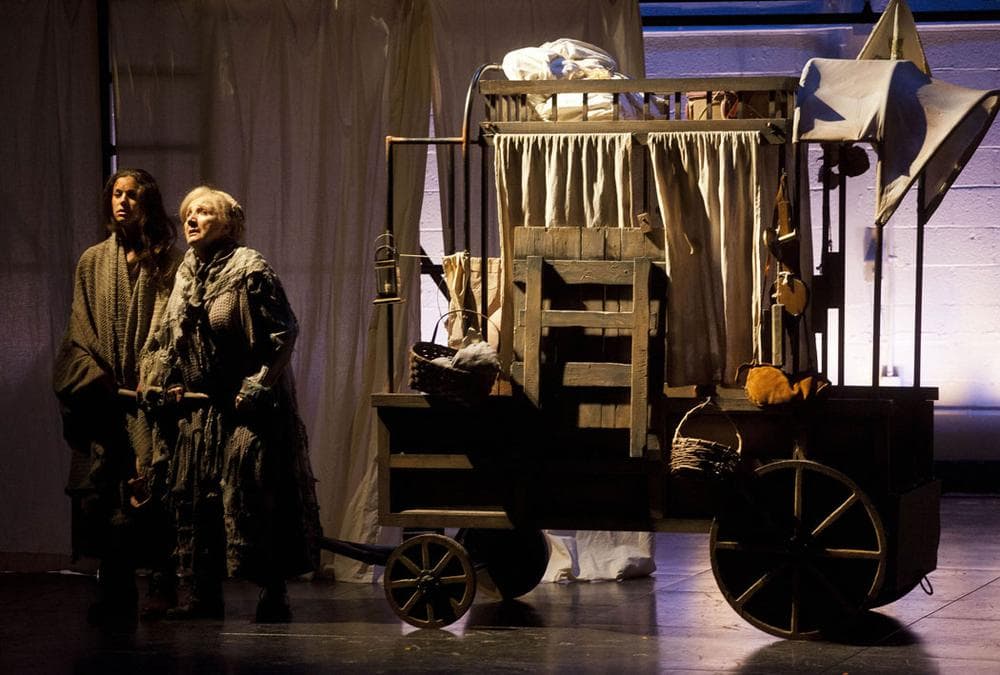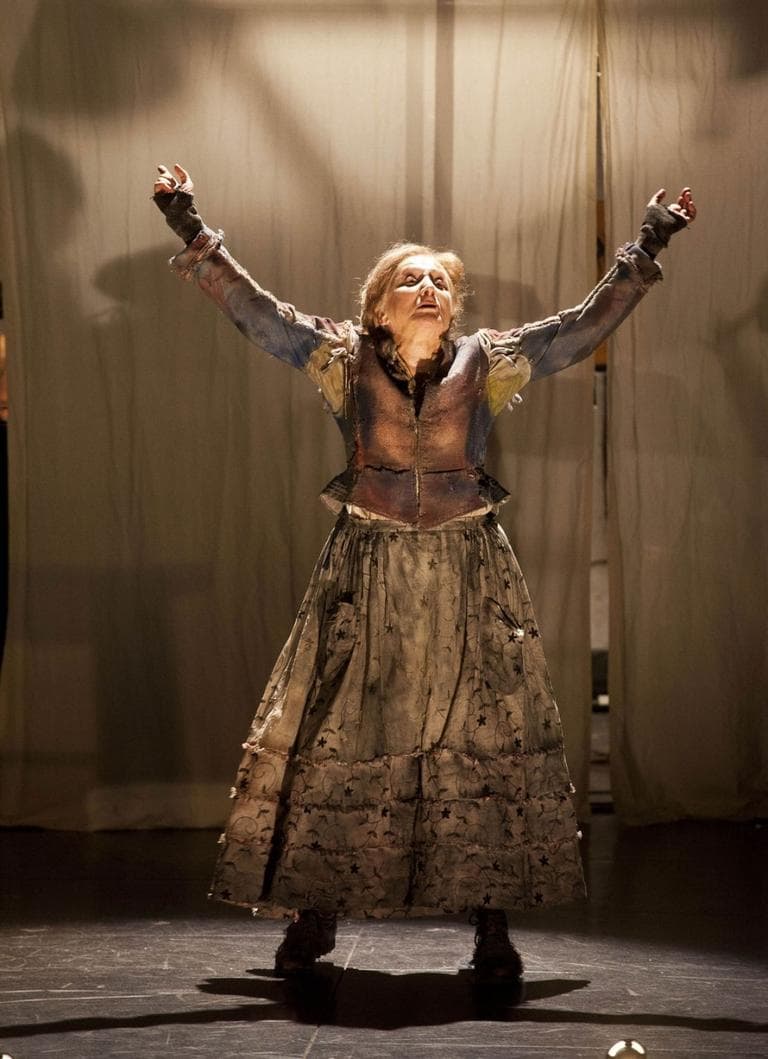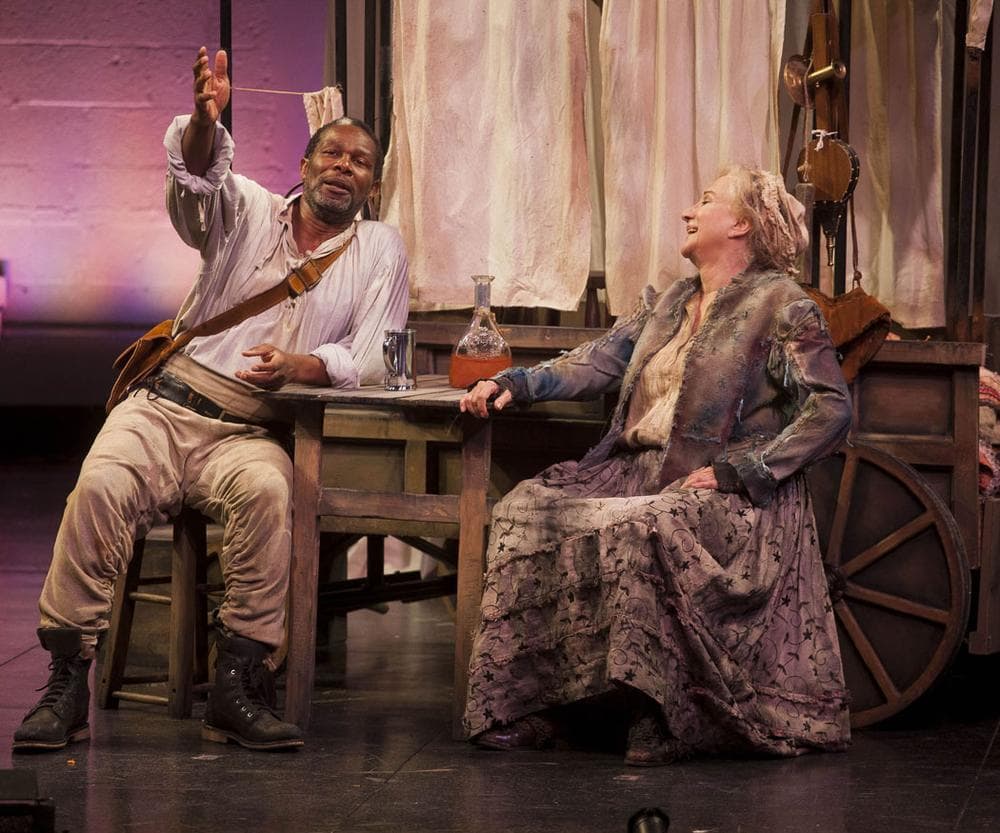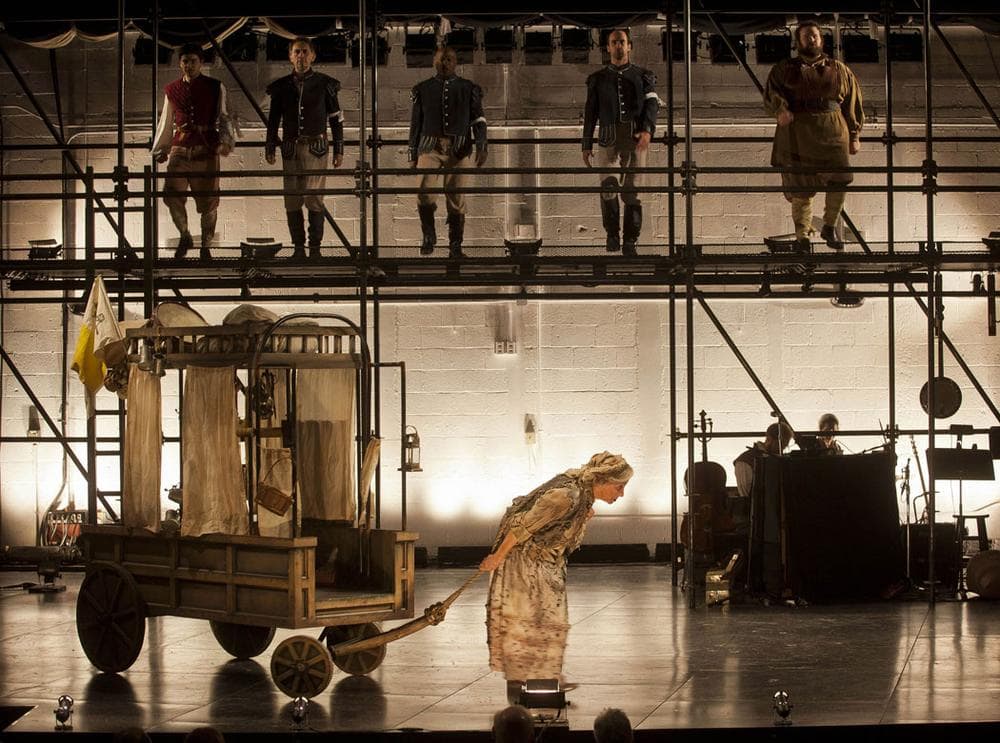Advertisement
Is There Still A War On? 'Mother Courage' At Shakespeare And Co.
In “Mother Courage and Her Children,” Bertolt Brecht’s landmark 1939 tragicomedy about the devastating costs of war, Mother Courage knows the game is rigged—the little folks always get chewed up—but she thinks this knowledge can keep her family safely just beyond the war’s teeth.
“You want to live off the war and keep you and yours out of it,” a recruiting sergeant complains to her in Shakespeare & Company’s fair production in Lenox, which runs through Aug. 25. “When a war gives you all you earn, one day it may claim something in return.”
Mother Courage—played by Olympia Dukakis, who won an Academy Award for her performance in the 1987 film “Moonstruck”—is in it to make a buck. She fears peace will ruin her business selling grub and booze and rags to the fighters. It’s all a commercial gamble, a gamble with their lives that she can outsmart war.
“The play was written,” Brecht (1898-1956) said, “when the writer foresaw a great war; he was not convinced that humanity was necessarily going to learn anything from the tragedy.”
Art, he added in a 1949 interview, “can and must contribute decisively to the solution of the nation’s vital problems.” Watching this production in bucolic Lenox, it seems easy to forget that we’ve been at war ourselves for more than a decade now, that the play has a message for us, it’s not just about other people in other places.

The setting is the Thirty Years’ War in 17th century Europe. Mother Courage and her three grown children follow behind the armies with her canteen wagon (nearly the only prop or set here), wheeling it across the stage.

“They call me Mother Courage,” she says,” because I was afraid I’d be ruined, so I drove through the bombardment of Riga like a madwoman with 50 loaves of bread in my cart. They were going moldy, what else could I do?”
Dukakis is sharp when playing the streetwise, haggling old lady dishing out sardonic wisecracks. “We’re in God’s hands now,” a chaplain says during one military reversal. “I hope we’re not that desperate,” Mother Courage comes back.
She gives it to ya straight while everyone else around her spouts lies and slogans. She sees no nobility in war, repeatedly warning against being courageous—keep your head down, surrender, knuckle under, save your own skins. “It’s only our honor that’s lost,” she says. “Nothing serious.”
Director Tony Simotes brings out the play’s broad, cynical, entertaining graveyard humor, but he doesn’t get the cast to navigate the script’s twists into pathos. Early on Mother Courage tells her children’s fortunes: death, all death. The jokes curdle and the story turns grueling as war and hunger and poverty and loss grind her down. But Dukakis tries to signal the hurt with postures and gestures without seeming to feel it.

Exceptions to the show’s emotional weakness are Apollo Dukakis, Olympia’s brother, who embodies the patient, patronizing rhythms of a pious-when-it’s-convenient chaplain and the excellent John Douglas Thompson as an army cook who woos Mother Courage with his charisma and warm humor, but like her he’s a survivor and he turns hard when the going gets tough.
The script itself feels fatalist—war is inevitable and self-perpetuating, individuals who stand up to it will be crushed. The climax of the play arrives when Mother Courage’s daughter, hiding on a farm, commits the one noble, heroic act of the story by trying to warn a town of an army’s stealthy approach. Angry soldiers come for her. It’s a moment of tense drama—the one time we witness violence break onto the stage—but the actors declaim their lines rather than touching the terror.
Again the war is a transaction—the farm family will give Mother Courage’s daughter up, will give anything up to save themselves. Brecht asks: what are we willing to trade to save others, to save ourselves, to put a stop to war? What will it cost us?

This article was originally published on August 07, 2013.
This program aired on August 7, 2013. The audio for this program is not available.
